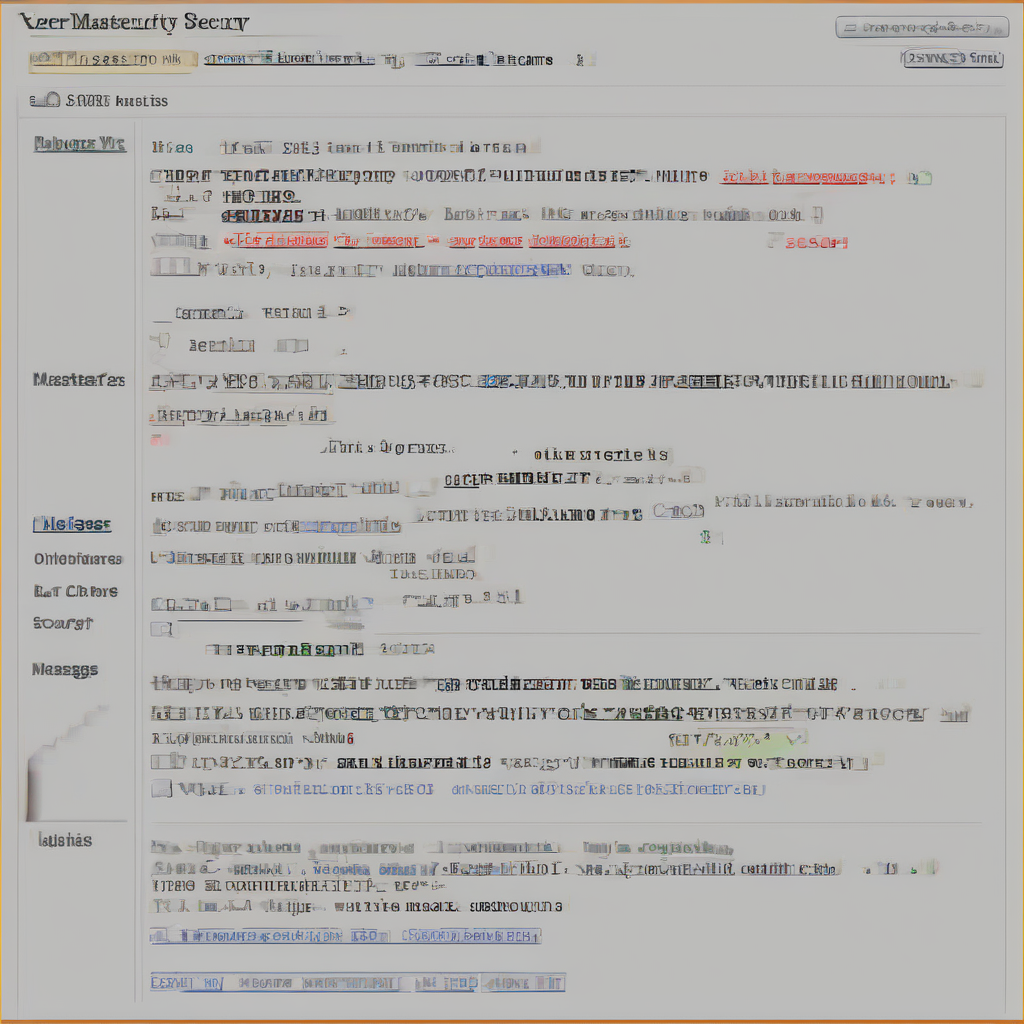Unlocking Your Cyber Security Potential: A Comprehensive Guide to Online Master’s Degrees
The digital landscape is constantly evolving, making cybersecurity a critical field with soaring demand. An online Master’s degree in cybersecurity offers a flexible and convenient pathway to a lucrative and impactful career. This comprehensive guide explores the benefits, program specifics, career paths, and considerations for pursuing an online Master’s in cybersecurity.
Why Choose an Online Master’s in Cybersecurity?
- Flexibility and Convenience: Study at your own pace, from anywhere with an internet connection. This is ideal for working professionals, individuals with family commitments, or those geographically limited.
- Affordability: Online programs often come with lower tuition costs compared to traditional on-campus programs, reducing the overall financial burden.
- Accessibility: Online programs broaden access to higher education for individuals who may not be able to relocate for on-campus study.
- Specialized Curriculum: Online programs often offer specialized tracks within cybersecurity, allowing you to tailor your education to your specific interests (e.g., cloud security, ethical hacking, data analytics).
- Networking Opportunities: Despite the virtual environment, online programs often facilitate networking through online forums, collaborative projects, and virtual events.
- Industry-Relevant Skills: Reputable online programs emphasize practical skills and hands-on experience, preparing you for real-world challenges.
Program Structure and Curriculum
Online Master’s in Cybersecurity programs typically span 1-2 years and comprise a range of core and elective courses. Core courses cover foundational cybersecurity concepts, while electives allow for specialization. Common topics include:
- Network Security: Firewalls, intrusion detection systems, VPNs, network segmentation.
- Cryptography: Encryption, decryption, key management, digital signatures.
- Operating Systems Security: Secure configurations, vulnerability management, system hardening.
- Database Security: SQL injection prevention, data encryption, access control.
- Ethical Hacking and Penetration Testing: Identifying vulnerabilities, assessing risks, developing mitigation strategies.
- Cloud Security: Securing cloud infrastructure, data storage, and applications.
- Risk Management and Governance: Identifying, assessing, and mitigating cybersecurity risks, implementing security policies and procedures.
- Incident Response: Investigating and responding to security incidents, containing breaches, and restoring systems.
- Digital Forensics: Investigating cybercrimes, recovering digital evidence, and presenting findings in court.
- Security Architecture and Design: Designing and implementing secure systems and networks.
Many programs also incorporate hands-on projects, simulations, and capstone projects to provide practical experience. Some programs may also include industry certifications as part of the curriculum.
Choosing the Right Online Master’s Program
Selecting the appropriate online Master’s program requires careful consideration of several factors:
- Accreditation: Ensure the program is accredited by a reputable organization, guaranteeing the quality and credibility of the education.
- Faculty Expertise: Research the faculty’s background and experience in the field. Look for professors with industry experience and strong research credentials.
- Curriculum Relevance: Evaluate the curriculum to ensure it aligns with your career goals and interests. Consider the specific areas of cybersecurity you want to focus on.
- Learning Platform and Technology: Assess the program’s online learning platform, ensuring it is user-friendly and provides adequate technical support.
- Career Services: Investigate the program’s career services, including job placement assistance, networking opportunities, and resume/interview preparation.
- Student Support: Consider the level of student support available, including access to academic advisors, online tutoring, and technical help.
- Cost and Financial Aid: Compare tuition fees, financial aid options, and scholarship opportunities to determine the overall program cost.
- Flexibility and Pace: Choose a program that fits your learning style and schedule. Consider the program’s pace and the flexibility it offers.
Career Paths and Job Prospects
A Master’s degree in cybersecurity significantly enhances career prospects and opens doors to a wide range of high-demand positions. Potential career paths include:
- Security Analyst: Identifying and mitigating security threats, analyzing vulnerabilities, and implementing security measures.
- Security Engineer: Designing, implementing, and maintaining security systems and networks.
- Penetration Tester: Identifying vulnerabilities in systems and networks through simulated attacks.
- Cybersecurity Manager/Director: Overseeing the organization’s overall cybersecurity strategy and operations.
- Cloud Security Architect: Designing and implementing secure cloud infrastructure and applications.
- Digital Forensics Investigator: Investigating cybercrimes and recovering digital evidence.
- Security Auditor: Evaluating the effectiveness of an organization’s security controls and recommending improvements.
- Compliance Officer: Ensuring the organization complies with relevant cybersecurity regulations and standards.
- Incident Responder: Investigating and responding to security incidents, containing breaches, and restoring systems.
- Security Consultant: Providing expert advice and guidance to organizations on cybersecurity matters.
Preparing for Your Online Master’s Program
To maximize your success in an online Master’s program, consider the following preparations:
- Assess Your Technical Skills: Evaluate your current technical skills and identify any areas needing improvement. Consider taking online courses or refreshing your knowledge in relevant areas.
- Develop Time Management Skills: Effective time management is crucial for success in online learning. Develop a study schedule that balances your academic commitments with other responsibilities.
- Establish a Dedicated Study Space: Create a quiet and organized workspace free from distractions to maximize your focus and productivity.
- Network with Professionals: Connect with professionals in the cybersecurity field through online forums, conferences, and networking events to expand your knowledge and build relationships.
- Stay Updated on Industry Trends: Cybersecurity is a rapidly evolving field. Stay informed about the latest threats, technologies, and best practices through industry publications, blogs, and conferences.
Conclusion (Omitted as per instructions)
